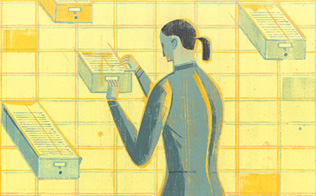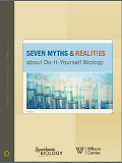Governance / Policy / Regulatory Issues

Startups, entrepreneurs, investors and others will convene Nov. 4-6 in San Francisco for the SynBioBeta 2015 conference to discuss the latest developments in synthetic biology. More information can be found here.
The Engineering Biology meeting, held in New York in April 2015, focused on the steps needed to ensure the full potential of synthetic biology. Videos presentations, articles and an executive summary can be found here.
Science magazine talks to Todd Kuiken of the Synthetic Biology Project about White House plans to update the framework surrounding biotechnology.
The Synthetic Biology Project supports White House plans to modernize the Coordinated Framework for the Regulation of Biotechnology to address emerging technologies like synthetic biology.
Respondents to national online poll from the Synthetic Biology Project are uncertain about potential of gene-editing technology, but a majority support a ban on human-based research.
The Wilson Center’s Synthetic Biology Project today has developed a first-of-its-kind inventory to track products and applications using the emerging technology of synthetic biology.
The Synthetic Biology Leadership Excellence Accelerator Program (SynBio LEAP) has awarded 23 fellowships to a wide variety of professionals to explore the future of synthetic biology. The fellows will convene their first meeting in early February, hosted by the Synthetic Biology Project at the Wilson Center.
A cross-disciplinary team is calling for public discussion about a potential new way to solve longstanding global ecological problems by using an emerging technology called “gene drives.”
In the new issue of BioCoder, Dr. Todd Kuiken of the Synthetic Biology Project looks at the increased attention being paid to DIYbio in the halls of power in Washington, DC.
The Synthetic Biology Project is working with the OpenPlant Synthetic Biology Research Centre in a new effort to encourage the responsible development of synthetic biology in the United Kingdom.

The first-ever survey of Do-It-Yourself Biology (DIYbio) practitioners finds the community to be far different from fearful and often sensationalist media representations.
But in a first-ever survey of the DIYbio community, the Synthetic Biology Project at the Woodrow Wilson International Center for Scholars finds this work is far more innocuous than news reports and others might suggest.
The Synthetic Biology Project at the Woodrow Wilson International Center for Scholars has been awarded a grant to participate in SYNENERGENE, a newly launched consortium of 28 groups supported with €4 million ($5.3 million) to engage in the responsible governance of synthetic biology.